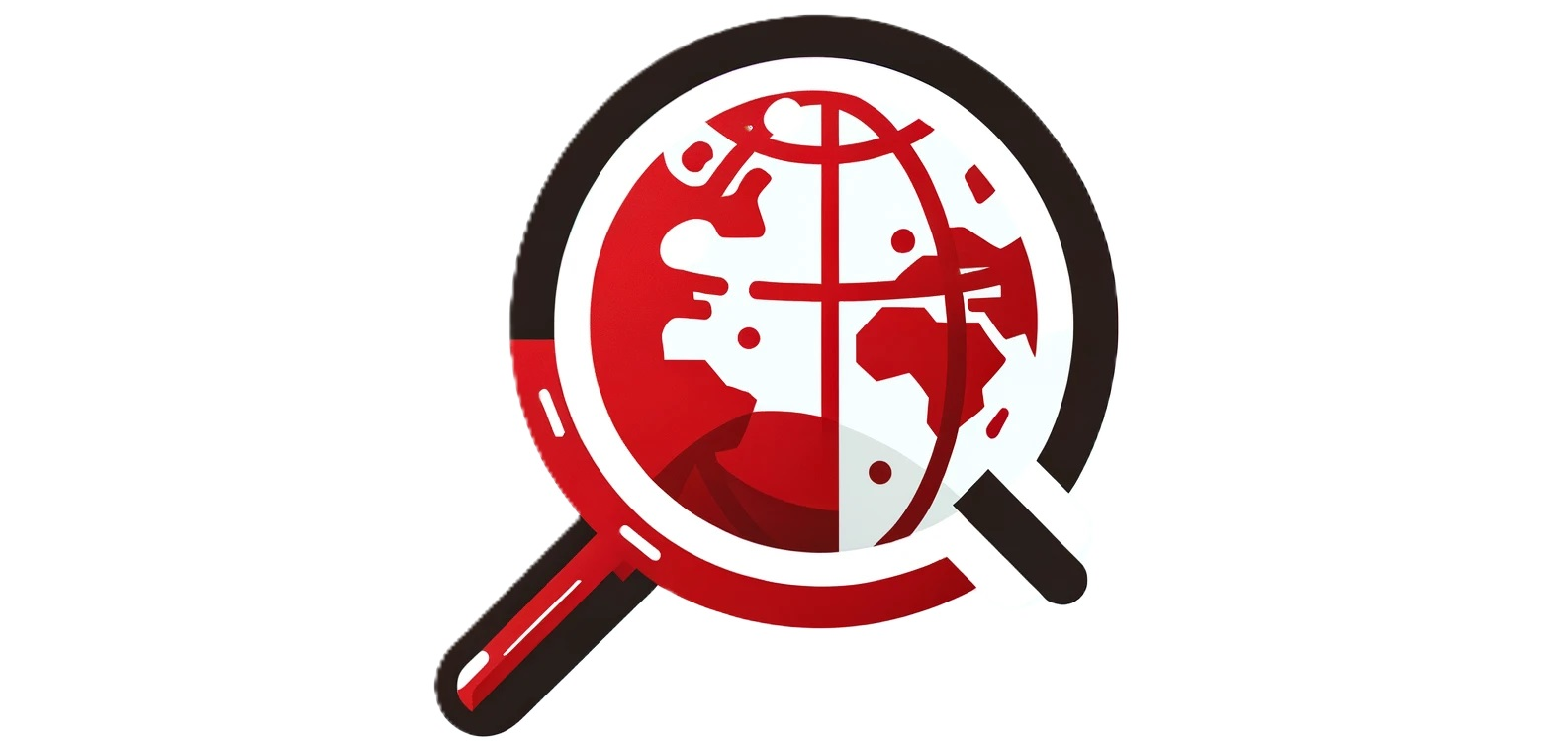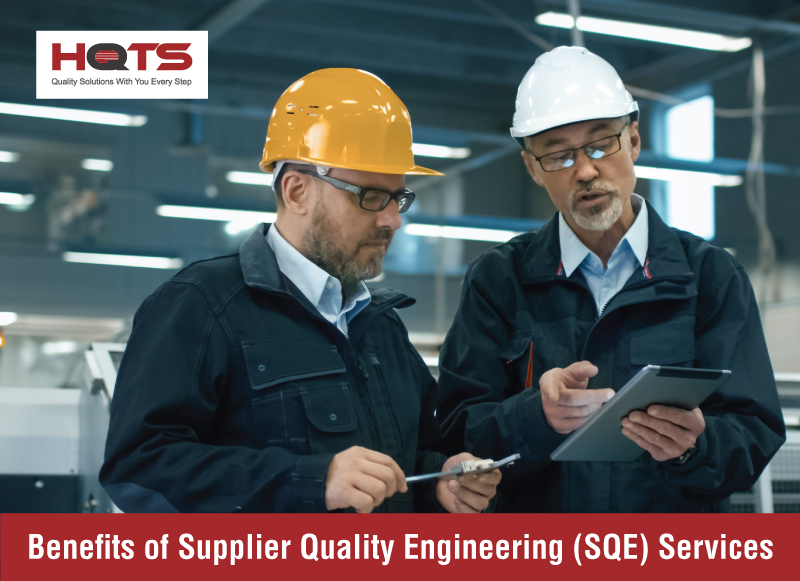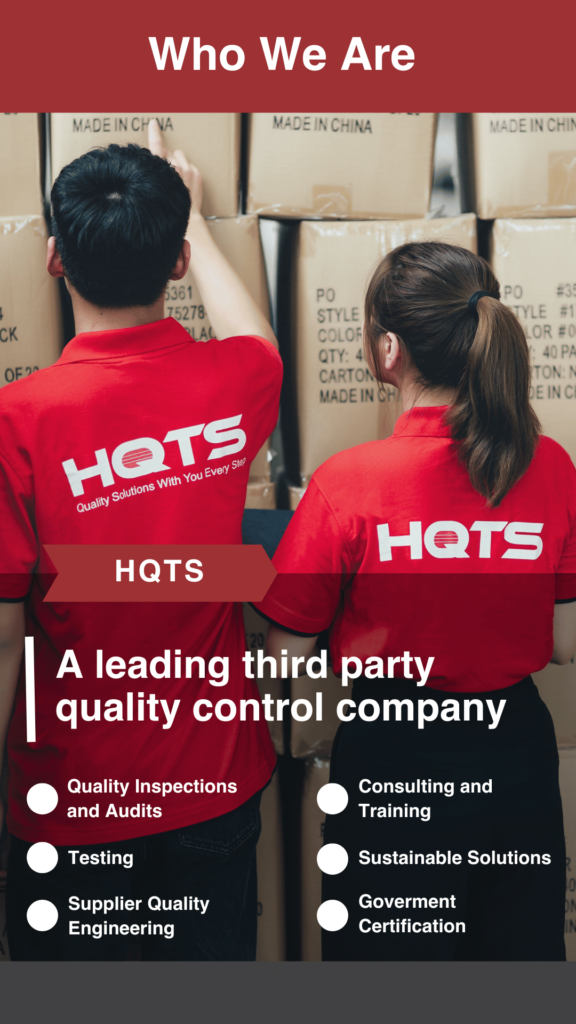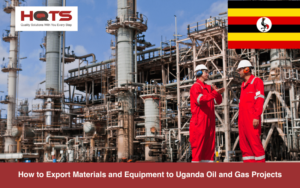Supplier Quality Engineers or SQEs are becoming increasingly important for organizations. These professionals ensure that the supplier’s products comply with your company’s standards and regulations.
In recent years, many organizations have turned to third-party companies to assist them in supplier audits and more. For companies, these third-party SQE and Service Quality Assurance (SQA) services have become a lifeline and an integral aspect of their operations.
In this article, you’ll learn what the supplier quality engineering roles are, what’s covered within their job description, the benefits of hiring external SQE services, and more.
What Is the Role of a Supplier Quality Engineer?
Supplier Quality Engineers, or SQEs, are tasked with ensuring the overall quality of a manufactured product is free from defects and in compliance with manufacturing, engineering, and government standards.
Their job revolves around coordinating suppliers and inspecting their processes to ensure they conform to the larger organization’s quality standards. In addition, the SQE is responsible for performing supplier audits and creating quality control plans to ensure solid processes are in place and resolve quality issues to allow for a streamlined supply chain.
Examples of Supplier Quality Engineer Responsibilities:
- Product Quality Improvement
- Design Quality Standards
- Inspect and Review Processes, Materials and Equipment
- Developing Quality Control Systems
- Root Cause Analysis and Create Corrective Action to Quality Issues
What Areas Does the Supplier Quality Engineering Cover?
The Supplier Quality Engineering team covers a wide range of areas related to the supply chain. We’ve broken down these areas into three major stages of the supply chain journey.
1. Supplier Evaluation and Audits
The first stage of SQE is to evaluate the supplier and audit the factory to ensure they are working according to the organization’s specifications. This step allows the management of a company to understand whether a supplier aligns with the organization’s determined quality goals and ensures a robust supply chain process.
In addition, the audits of the factory and supplier would usually take place continuously and actions for improvement would be regularly followed.
2. Design and Development / New Product Introduction
SQEs can also play an integral role in the management/launching of new products. These areas generally include assessing and managing processes related to the new product introduction or design elements, as well as evaluating product lines and their efficiency as it moves towards broader distribution.

3. Product Entering Mass Production
The role of an SQE does not end once a product reaches mass production. Conversely, once a product is at the mass production stage, the supplier quality management plays a key role. The SQE proactively conducts quality checks for manufacturing processes and outputs to help the company detect and eliminate defects before they reach the market, thereby protecting the company’s image.
Typically, this would be done through robust documentation of production line processes and inspections. While continually optimizing the production line by solving potential pain points and inefficiencies.
Other services
The role of an SQE does not stop there. In addition to the services presented above, SQE covers a range of different tasks and services that assist with inspection and assurance of quality within the supply chain. It is important to note that these are dependent on the product and organization, but can include:
- Sample/Mold Confirmation
- New Product Introduction
- Mass Production Management
- Production Technical Support
- Quality Management
- Production Line Efficiency Improvement
- Supplier Improvement and Promotion
- Lean Production Management
These tasks are essential to the continued development of a supply chain and quality management, allowing it to scale once reaching the mass production phase successfully.
What Is the Difference Between SQE and SQA?
Supplier Quality Engineering and Supplier Quality Assurance are very closely linked together. Because of this link, there can often be confusion regarding where they both sit within the supply chain process. Although there are many similarities, there are some distinct differences as noted below.
What Is a Supplier Quality Assurance (SQA)?
Supplier Quality Assurance can be defined as the maintenance of a desired aspect of directly interacting with suppliers to ensure the materials or products received align with the quality standard set out by the organization in question. SQA focuses on the development itself within the supply chain and therefore functions as a gatekeeper in the manufacturing environment – ensuring that highest quality standards are always met for the product.
What Is a Supplier Quality Engineering (SQE)?
Unlike SQA, supplier quality engineering focuses more on the processes and product itself. The SQE often works closely with the design team to ensure that quality is upheld and “engineered” into the design of the product before it reaches mass production. This is achieved using various scientific principles.
Once the product has reached the mass production stage, the quality engineering team focuses on continuously optimizing and creating quality processes to ensure the conformity of goods that are produced and inspected. They also make sure that the production line is scalable and capable of meeting the demand for a product line.
What Are the Benefits of Outsourcing Supplier Quality Engineer Services?
Many large-scale organizations have in recent years outsourced their SQE engineer needs to third-party organizations to develop their supply chain quality processes. Outsourcing supplier quality management services like SQE comes with many benefits, including:
1. Reduce Defects in the Operations
Outsourcing your SQE needs is a cost-effective method to reduce the risk of defective products from your supplier – before these products enter the market.
2. Proactive Approach to Supplier Quality Management
Hiring an external SQE engineer is an effective method to take a proactive approach to quality management, supplier quality control and supply chain engineering. These experts can identify, visualize and minimize potential risks within the supply chain. These could range from failure to meet manufacturing specifications, and the company’s quality standard to the government or industry standards.
Rather than being reactive to issues when they occur, third-party SQE can shed problems to light before they occur and help you find preventive measures for them.

3. Assists in the Procurement Process
Having a clear understanding of a supplier is a valuable asset when it comes to c-suite decision-making within the procurement process. An SQE can help you research and inspect the said supplier to fully understand their capabilities and fit for your organization.
4. Reduce Costs Through More Efficient Processes
SQE can identify bottlenecks within your supplier’s manufacturing process that can reduce the quality of the product and hinder operational efficiencies. An SQE can offer concrete solutions to address quality and supply chain problems.
5. Helps Develop Scalability
As organizations grow and develop, they need to take the time to carefully plan out processes and put systems in place that will serve as a solid foundation for the future scaling of their supply chain. An experienced external SQE can be instrumental in helping companies develop these processes and systems that lay the groundwork for smooth scalability.
Conclusion: What Are the Benefits of Supplier Quality Engineering (SQE) Services?
We’ve covered the fundamentals of Supplier Quality Engineering (SQE) services in this article. Although there are many benefits of outsourcing your SQE needs to a neutral third-party.
One of the biggest advantages is that it’s a cost-effective method to reduce the risk of defects and optimize processes, so that your manufactured products can be of the highest quality.
We at AQM BD, a third-party inspection and testing organization with over 25 years of experience, have a team of dedicated SQE professionals globally. We’ve helped organizations improve their supply chain quality processes. Interested to learn how we can help you? Click here to get a pricing quote.





